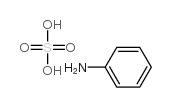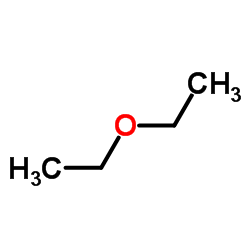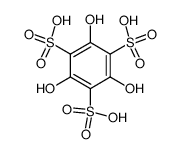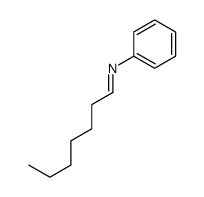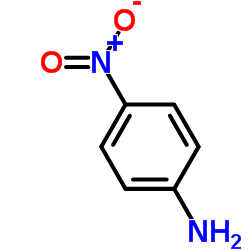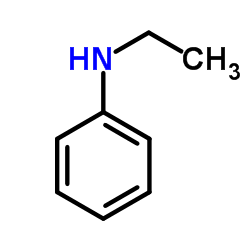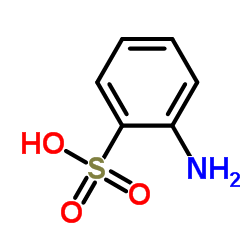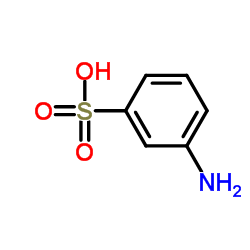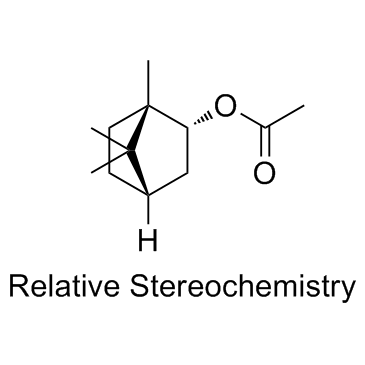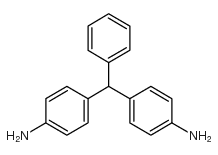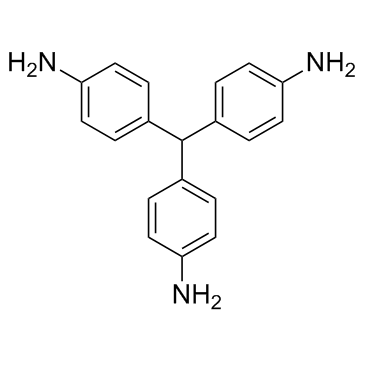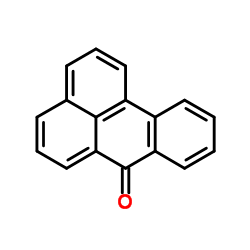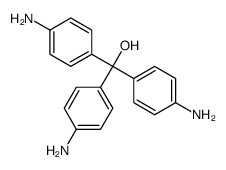542-16-5
| 中文名 | 苯胺硫酸盐(2:1) |
|---|---|
| 英文名 | Aniline sulfate |
| 中文别名 |
硫酸苯胺
苯胺硫酸盐 |
| 英文别名 |
Benzenamine,sulfate
ANILINE SULPHATE Anilinedihydrosulfate Anilinium Sulfate dianilinium sulphate Anilin,Sulfat MFCD00013110 dianilunium sulphate EINECS 208-805-0 ANILINE SULFATE REAGENT anilin sulfate Dianilinium sulfate aniline,sulfate aniline sulfate salt |
| 密度 | 1.38 |
|---|---|
| 沸点 | 184.4ºC at 760 mmHg |
| 熔点 | -6ºC |
| 分子式 | C6H9NO4S |
| 分子量 | 191.20500 |
| 闪点 | 70ºC |
| 精确质量 | 191.02500 |
| PSA | 109.00000 |
| LogP | 2.27800 |
| 外观性状 | 白色至非常略黄色结晶粉末 |
| 储存条件 | 本品应密封避光保存。 |
| 稳定性 | 按规格使用和贮存,不会发生分解,避免与氧化物接触 |
| 计算化学 | 1.疏水参数计算参考值(XlogP):无 2.氢键供体数量:3 3.氢键受体数量:5 4.可旋转化学键数量:0 5.互变异构体数量:无 6.拓扑分子极性表面积109 7.重原子数量:12 8.表面电荷:0 9.复杂度:127 10.同位素原子数量:0 11.确定原子立构中心数量:0 12.不确定原子立构中心数量:0 13.确定化学键立构中心数量:0 14.不确定化学键立构中心数量:0 15.共价键单元数量:2 |
| 更多 | 1. 性状:白色有光泽的片状结晶。见光或在空气中色变深。 2. 密度(g/mL,25/4℃): 未确定 3. 相对蒸汽密度(g/mL,空气=1):未确定 4. 熔点(ºC):未确定 5. 沸点(ºC,常压):未确定 6. 沸点(ºC,5.2kPa):未确定 7. 折射率:未确定 8. 闪点(ºC):未确定 9. 比旋光度(º):未确定 10. 自燃点或引燃温度(ºC):未确定 11. 蒸气压(kPa,25ºC):未确定 12. 饱和蒸气压(kPa,60ºC):未确定 13. 燃烧热(KJ/mol):未确定 14. 临界温度(ºC):未确定 15. 临界压力(KPa):未确定 16. 油水(辛醇/水)分配系数的对数值:未确定 17. 爆炸上限(%,V/V):未确定 18. 爆炸下限(%,V/V):未确定 19. 溶解性:溶于水,微溶于乙醇,不溶于乙醚。 |
Synonym:Non Section 2 - COMPOSITION, INFORMATION ON INGREDIENTS
Risk Phrases: 20/21/22 40 50 48/23/24/25 Section 3 - HAZARDS IDENTIFICATION EMERGENCY OVERVIEW
Harmful by inhalation, in contact with skin and if swallowed. Limited evidence of a carcinogenic effect. Very toxic to aquatic organisms. Toxic : danger of serious damage to health by prolonged exposure through inhalation, contact with skin and if swallowed.The toxicological properties of this material have not been fully investigated.Hygroscopic (absorbs moisture from the air).Light sensitive. Potential Health Effects Eye: May cause eye irritation. Skin: May cause skin irritation. Harmful if absorbed through the skin. If absorbed, may cause symptoms similar to those for ingestion. Ingestion: May cause gastrointestinal irritation with nausea, vomiting and diarrhea. The toxicological properties of this substance have not been fully investigated. Methemoglobinemia is characterized by dizziness, drowsiness, headache, shortness of breath, cyanosis (bluish discoloration of skin due to deficient oxygenation of the blood), rapid heart rate and chocolate-brown colored blood. Overexposure may cause methemoglobinemia. Inhalation: May cause respiratory tract irritation. May cause effects similar to those described for ingestion. May cause pulmonary edema and severe respiratory disturbances. The toxicological properties of this substance have not been fully investigated. Chronic: Possible cancer hazard based on tests with laboratory animals. Section 4 - FIRST AID MEASURES Eyes: Immediately flush eyes with plenty of water for at least 15 minutes, occasionally lifting the upper and lower eyelids. Get medical aid immediately. Skin: Get medical aid immediately. Immediately flush skin with plenty of water for at least 15 minutes while removing contaminated clothing and shoes. Ingestion: If victim is conscious and alert, give 2-4 cupfuls of milk or water. Get medical aid immediately. Inhalation: Remove from exposure and move to fresh air immediately. If not breathing, give artificial respiration. If breathing is difficult, give oxygen. Get medical aid. Notes to Physician: Absorption of this product into the body may cause cyanosis (bluish discoloration of skin due to deficient oxygenation of the blood). Moderate degrees of cyanosis need to be treated only by supportive measures: bed rest and oxygen inhalation. For methemoglobinemia, administer oxygen alone or with Methylene Blue depending on the methemoglobin concentration in the blood. Cleansing of the entire contaminated area of the body is of utmost importance. Section 5 - FIRE FIGHTING MEASURES General Information: As in any fire, wear a self-contained breathing apparatus in pressure-demand, MSHA/NIOSH (approved or equivalent), and full protective gear. During a fire, irritating and highly toxic gases may be generated by thermal decomposition or combustion. Extinguishing Media: Use water spray, dry chemical, carbon dioxide, or chemical foam. Section 6 - ACCIDENTAL RELEASE MEASURES General Information: Use proper personal protective equipment as indicated in Section 8. Spills/Leaks: Vacuum or sweep up material and place into a suitable disposal container. Wash area with soap and water. Clean up spills immediately, observing precautions in the Protective Equipment section. Provide ventilation. Section 7 - HANDLING and STORAGE Handling: Wash thoroughly after handling. Avoid contact with eyes, skin, and clothing. Avoid ingestion and inhalation. Use only in a chemical fume hood. Storage: Store in a cool, dry place. Do not store in direct sunlight. Store in a tightly closed container. Section 8 - EXPOSURE CONTROLS, PERSONAL PROTECTION Engineering Controls: Facilities storing or utilizing this material should be equipped with an eyewash facility and a safety shower. Use only under a chemical fume hood. Exposure Limits CAS# 542-16-5: Personal Protective Equipment Eyes: Wear appropriate protective eyeglasses or chemical safety goggles as described by OSHA's eye and face protection regulations in 29 CFR 1910.133 or European Standard EN166. Skin: Wear appropriate protective gloves to prevent skin exposure. Clothing: Wear appropriate protective clothing to prevent skin exposure. Respirators: Follow the OSHA respirator regulations found in 29 CFR 1910.134 or European Standard EN 149. Use a NIOSH/MSHA or European Standard EN 149 approved respirator if exposure limits are exceeded or if irritation or other symptoms are experienced. Section 9 - PHYSICAL AND CHEMICAL PROPERTIES Physical State: Solid Color: Not available. Odor: None reported. pH: Not available. Vapor Pressure: Not available. Viscosity: Not available. Boiling Point: Not available. Freezing/Melting Point: Not available. Autoignition Temperature: Not available. Flash Point: Not available. Explosion Limits, lower: Not available. Explosion Limits, upper: Not available. Decomposition Temperature: Solubility in water: Specific Gravity/Density: 1.3800g/cm3 Molecular Formula: C12H14N2.H2SO4 Molecular Weight: 284.33 Section 10 - STABILITY AND REACTIVITY Chemical Stability: Stable under normal temperatures and pressures. Conditions to Avoid: Incompatible materials, light. Incompatibilities with Other Materials: Strong oxidizing agents. Hazardous Decomposition Products: Carbon monoxide, oxides of nitrogen, oxides of sulfur, carbon dioxide. Hazardous Polymerization: Has not been reported Section 11 - TOXICOLOGICAL INFORMATION RTECS#: CAS# 542-16-5 unlisted. LD50/LC50: Not available. Carcinogenicity: Aniline sulfate - Not listed by ACGIH, IARC, or NTP. Section 12 - ECOLOGICAL INFORMATION Section 13 - DISPOSAL CONSIDERATIONS Dispose of in a manner consistent with federal, state, and local regulations. Section 14 - TRANSPORT INFORMATION IATA Shipping Name: TOXIC SOLID, ORGANIC, N.O.S.* Hazard Class: 6.1 UN Number: 2811 Packing Group: III IMO Shipping Name: TOXIC SOLID, ORGANIC, N.O.S. Hazard Class: 6.1 UN Number: 2811 Packing Group: III RID/ADR Shipping Name: TOXIC SOLID, ORGANIC, N.O.S. Hazard Class: 6.1 UN Number: 2811 Packing group: III Section 15 - REGULATORY INFORMATION European/International Regulations European Labeling in Accordance with EC Directives Hazard Symbols: T N Risk Phrases: R 20/21/22 Harmful by inhalation, in contact with skin and if swallowed. R 40 Limited evidence of a carcinogenic effect. R 48/23/24/25 Toxic : danger of serious damage to health by prolonged exposure through inhalation, contact with skin and if swallowed. R 50 Very toxic to aquatic organisms. Safety Phrases: S 28A After contact with skin, wash immediately with plenty of water. S 36/37 Wear suitable protective clothing and gloves. S 45 In case of accident or if you feel unwell, seek medical advice immediately (show the label where possible). S 61 Avoid release to the environment. Refer to special instructions/safety data sheets. WGK (Water Danger/Protection) CAS# 542-16-5: No information available. Canada CAS# 542-16-5 is listed on Canada's DSL List. CAS# 542-16-5 is not listed on Canada's Ingredient Disclosure List. US FEDERAL TSCA CAS# 542-16-5 is listed on the TSCA inventory. SECTION 16 - ADDITIONAL INFORMATION N/A |
|
生态学数据: 该物质对环境可能有危害,对水体应给予特别注意。
|
| 符号 |




GHS05, GHS06, GHS08, GHS09 |
|---|---|
| 信号词 | Danger |
| 危害声明 | H301 + H311 + H331-H317-H318-H341-H351-H372-H410 |
| 警示性声明 | Missing Phrase - N15.00950417-P260-P280-P302 + P352 + P312-P304 + P340 + P312-P305 + P351 + P338 + P310 |
| 危害码 (欧洲) | T: Toxic;N: Dangerous for the environment; |
| 风险声明 (欧洲) | R23/24/25 |
| 安全声明 (欧洲) | S26-S27-S36/37/39-S45-S61-S63 |
| 危险品运输编码 | UN 2811 6.1/PG 3 |
| WGK德国 | 3 |
| 包装等级 | III |
| 危险类别 | 6.1 |
| 上游产品 6 | |
|---|---|
| 下游产品 10 | |
